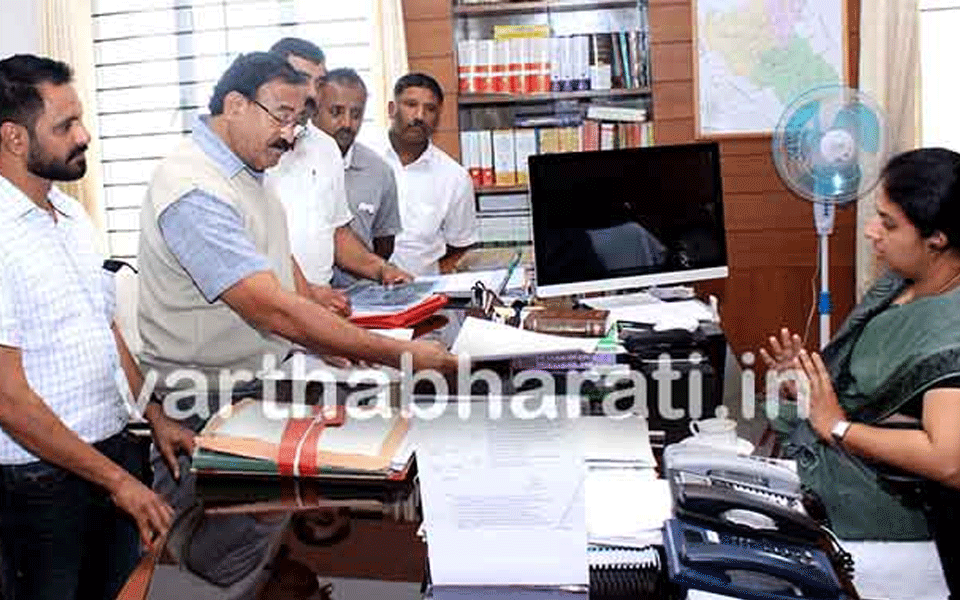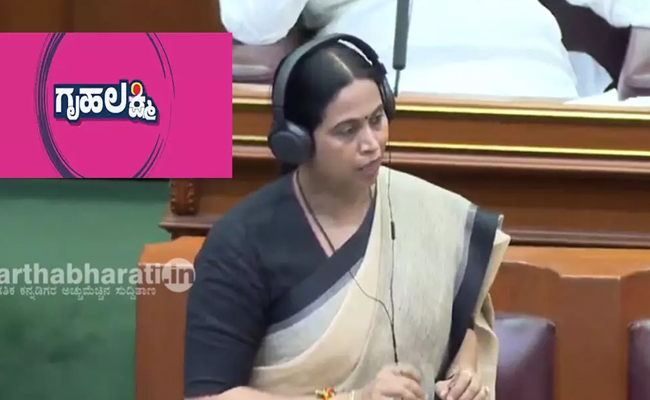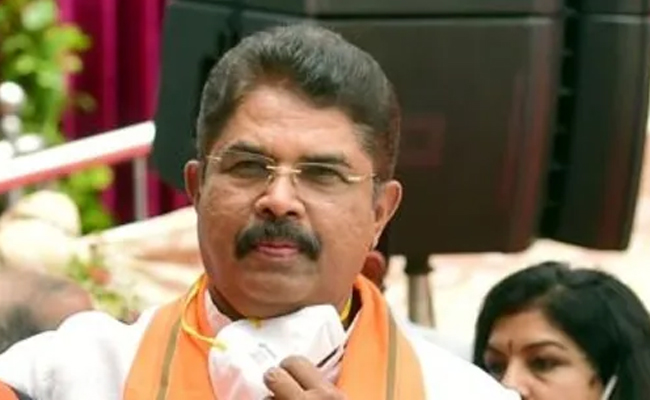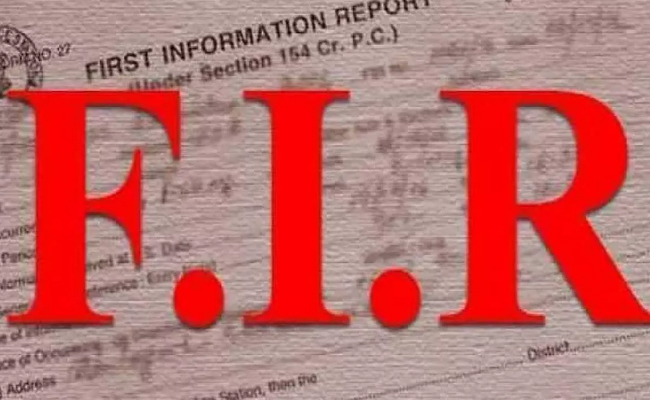Madikeri, June 26: Alleging that the EVMs used in the constituency for Assembly election might have hacked, Congress defeated candidate from Virajpet CS Arun Machaiah that the votes polled in the constituency should be counted again along with the VVPAT.
Before submitting a memorandum to the Central Election Commissioner and State Election Officer through the district Returning Officer demanding recounting of votes here on Tuesday, he told media persons that he would obey the verdict of the people. But the election held through EVMs would not be a transparent one. He was ready to prove the EVMs hacking from technical experts, he said.
The Constituency has 269 polling stations and as per the survey conducted by him and his party workers after the election, he should have won the election by a margin of 9000 votes. But during the counting, his opponent candidate won the election with a huge margin of votes and it created suspicion of hacking. As there is a norm that any objections regarding election should be filed within 45 days, he collected the complete details for one month and complained to the Central Election Commission and State Election Chief Officer, he said.
The developed countries like USA, Italy, Netherland, Germany and others have proved that EVMs are not transparent. Though the EVMs were improvised in view of this opinion, the central government had accepted that the EVM2 used in the previous elections were not reliable. Moreover, the Central Government had assured the Supreme Court of using EVM 3 in next elections. But in Karnataka Assembly elections, the Election Commission had used EVM2 and this led to suspicion, he said.
Though Karnataka had more than 12.50 lakh EVM2, the central government had supplied EVMs used in Uttar Pradesh and Gujarat elections to Karnataka. After bringing them to Karnataka, the EVMs were kept in the National Institute of Engineering of Mysuru, which also raised concerns. He is suspected that a professor with the help of a team of engineers ‘manipulated’ the EVMs, he alleged.
Giving an example of luring someone to hack the EVM at a constituency in Mysuru, Arun Machaiah said that such persons might have hacked the EVMs in Kodagu and he has some information that such people were absconding. Now, the Cyber Crime officials have been investigating, he said.
Experts are of the opinion that microchips could be installed in EVM2 and the votes registered in such machines could be transferred to other person remotely. In view of this, the Election Commission should recount the votes recorded in the EVM and registered in the VVPAT. He would also move the High Court demanding action against the culprits for misusing the EVMs. Same complaints would be lodged from Mangaluru, Mysuru and other constituencies, he said.
District Congress spokesperson Tatu Monnappa, Virajpet Block president RK Salam, Napoklu Block president BS Ramanath and Ponnampet Block president Dharmaja Uthappa were present at the press conference.

Let the Truth be known. If you read VB and like VB, please be a VB Supporter and Help us deliver the Truth to one and all.
Belagavi (Karnataka) (PTI): The opposition BJP on Wednesday staged a walkout from the Karnataka assembly protesting the alleged "non-disbursal" of two months' installments to 1.26 crore beneficiaries under a woman's assistance scheme of the state government.
The protest followed a heated debate in which the opposition accused the state government of providing "misleading" information regarding the payment status of the flagship Gruha Lakshmi scheme.
The saffron party members trooped into the well of the House and raised slogans, leading to the adjournment of the proceedings of the House for over an hour.
ALSO READ: 'Homebound' makes it to Oscar shortlist for best international feature
The Gruha Lakshmi guarantee scheme is one of the five pre-poll promises of the ruling Congress. It provides Rs 2,000 monthly to women heads of the Below Poverty Line (BPL) families.
The BJP legislators accused Woman and Child Welfare Minister Laxmi Hebbalkar of having "misled" the House by giving false information to BJP MLA Mahesh Tenginkai that all the instalments till August have been paid under the scheme.
The opposition charged that the installments for the months of February and March this year were not paid.
The BJP MLAs' grouse was that they had been demanding an explanation from the Minister for the past three days, but she never turned up to provide information.
As soon as the session started, the opposition members trooped into the well of the House demanding the Minister's presence, which led to the adjournment.
When the members assembled again, the Minister replied that this is a unique flagship programme of the Congress government, which is a model for all the states.
Hebbalkar said she always strived to ensure that this scheme is implemented religiously.
"However, when I checked, I noticed that two months' installments were not paid to the beneficiaries through Direct Benefit Transfer (DBT). If my reply has hurt anyone, then I express my regret," she said.
Deputy Chief Minister D K Shivakumar, who came to the defence of Hebbalkar, said the BJP should apologise for the lie in the Union Budget.
"Despite the Union Minister Nirmala Sitharaman announcing Rs 5,300 crore for the Upper Bhadra Irrigation Project in the budget, the money was not given to Karnataka. You should question that as well," Shivakumar underlined.
ALSO READ: Actress Shilpa Shetty's restaurant booked for breaching operating hours
To this, Leader of Opposition in the assembly R Ashoka said the matter was raised because not only were the BJP members hurt but also the 1.26 crore beneficiaries who were eagerly waiting for the money.
Demanding that the lie be expunged from the House records, he insisted on a date for when the backlog will be paid to the beneficiaries.
The Minister said she was apologising for giving a wrong reply, but she was peeved at the way a woman was targeted in the House.
Objecting to this statement, BJP MLA S Suresh Kumar asked her to refrain from playing victim card and bring up the issue of gender, caste and religious discrimination as it was a matter related to 1.26 crore people.
Ashoka and the BJP MLAs then staged a walkout, saying the Minister's reply was not satisfactory.






